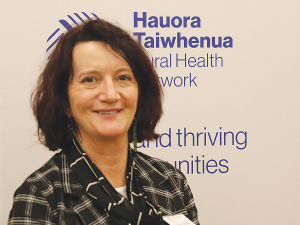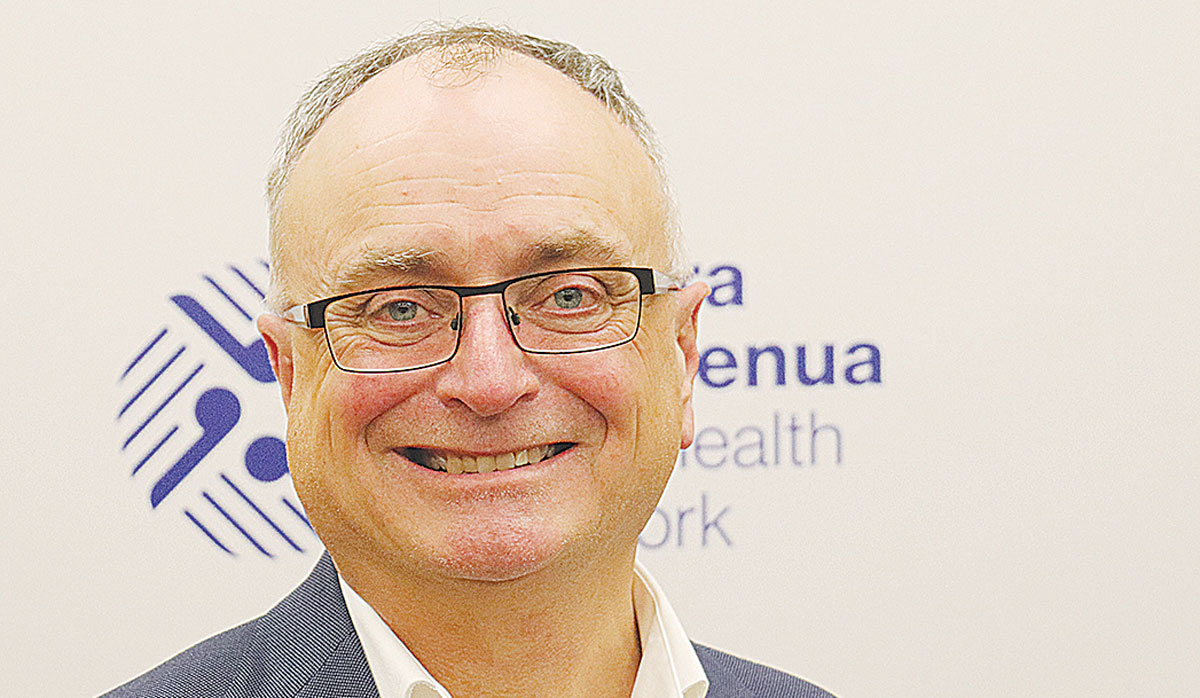Doctors and rural women welcome pre-Budget boost for urgent and after-hours care
Doctors and rural women are welcoming the recent pre-budget announcement from the Government that it would be boosting funding to urgent and afterhours care facilities.
 Hauora Taiwhenua interim chair Dr Fiona Bolden says the new organisation brings all the representatives of rural health and well-being into one place.
Hauora Taiwhenua interim chair Dr Fiona Bolden says the new organisation brings all the representatives of rural health and well-being into one place.
A stronger and more powerful voice for rural health is how Hauora Taiwhenua - the Rural Health Network - is being touted by its interim chair Dr Fiona Bolden.
Launched at Parliament last week, Hauora Taiwhenua brings into one organisation nine separate groups who work in the rural health sector: including those working as Rural GPs, nurses, midwives, hospitals, researchers, community organisations and Māori. The formal launch of the new entity comes at the same time as the new health reforms take effect.
Bolden says the main benefit of the new organisation is that it brings all the representatives of rural health and wellbeing into one place. She says, in doing so, it creates a very powerful voice in terms of rural health advocacy.
"We hope all it will mean with the new health legislation [is] we will be... part of the process of keeping the Government to account for the rural health strategy, which is part of the reforms," she told Rural News.
Bolden says this is a crucial time for the NZ health service as the new reforms take effect. She says the service is suffering from underfunding and a lack of workforce planning. She adds that it has also had to deal with the pandemic, which has put even more pressure on vulnerable services.
"This has affected everybody, in particular the healthcare workers and the patients, after all it's the people that suffer, not the system. Nowhere is this more obvious than in rural NZ," she says.
Bolden adds that the rural system is still very dependent on the good will of volunteers and poorly paid providers.
Also speaking at the launch was Wairarapa MP and new cabinet Minister Kieran McAnulty. He claims one of the problems with the rural health system is what he calls "the post code lottery', where health services are delivered on artificial boundaries and not necessarily relevant communities of interest.
"In my own electorate in the Wairarapa, despite the large number of people requiring dialysis, we do not have a dialysis service, the people in Eketahuna, despite being closer to Masterton hospital than Palmerston, can't access that healthcare because of an artificial boundary."
McAnulty says it costs more to deliver healthcare in rural areas, but when the funding structure is based on population, you are always going to get disproportionate access to healthcare, urban versus rural. He claims one of the aims of new health reforms is to change this.
End of the Post Code Lottery?
Meanwhile, medical director of the College of General Practitioners Dr Bryan Betty says the challenge of getting doctors to work in rural areas has traditionally always been difficult.
 |
|---|
|
Medical director of the College of General Practitioners Dr Bryan Betty. |
He says with a general shortage of GPs in the country, the problem is being exacerbated in rural areas.
Betty says it's imporant for patients with complex health issues and/or living in deprived areas to have access in a timely and culturally appropriate way to frontline medical services.
He says this is certainly the case for many rural folk. Betty has serious concerns about the artificial health boundaries.
"With the Pae Ora Bill and Health NZ coming into play, we'll hopefully start to see some of these artificial boundaries - the post code lottery that everyone talks about - disappear," he told Rural News.
"I think this will be incredibly important for rural communities. This will be a big step forward and is going to require a strategic approach to the workforce and how you get people to work in rural communities."
Betty says it's an equity issues to ensure that we are giving equal health outcomes to all people in NZ.
Agrisea NZ has appointed Craig Hudson as it's new chief growth officer.
State farmer Landcorp, trading as Pamu, is a forecasting a full-year net profit of around $100 million.
Tony Aitken, chief executive of Ruralco, has been awarded the Excellence in Business Leadership Award at the ANZ Business of the Year Awards.
Global trade has been thrown into another bout of uncertainty following the overnight ruling by US Supreme Court, striking down President Donald Trump's decision to impose additional tariffs on trading partners.
Controls on the movement of fruit and vegetables in the Auckland suburb of Mt Roskill have been lifted.
Fonterra farmer shareholders and unit holders are in line for another payment in April.

OPINION: Here w go: the election date is set for November 7 and the politicians are out of the gate…
OPINION: ECan data was released a few days ago showing Canterbury farmers have made “giant strides on environmental performance”.